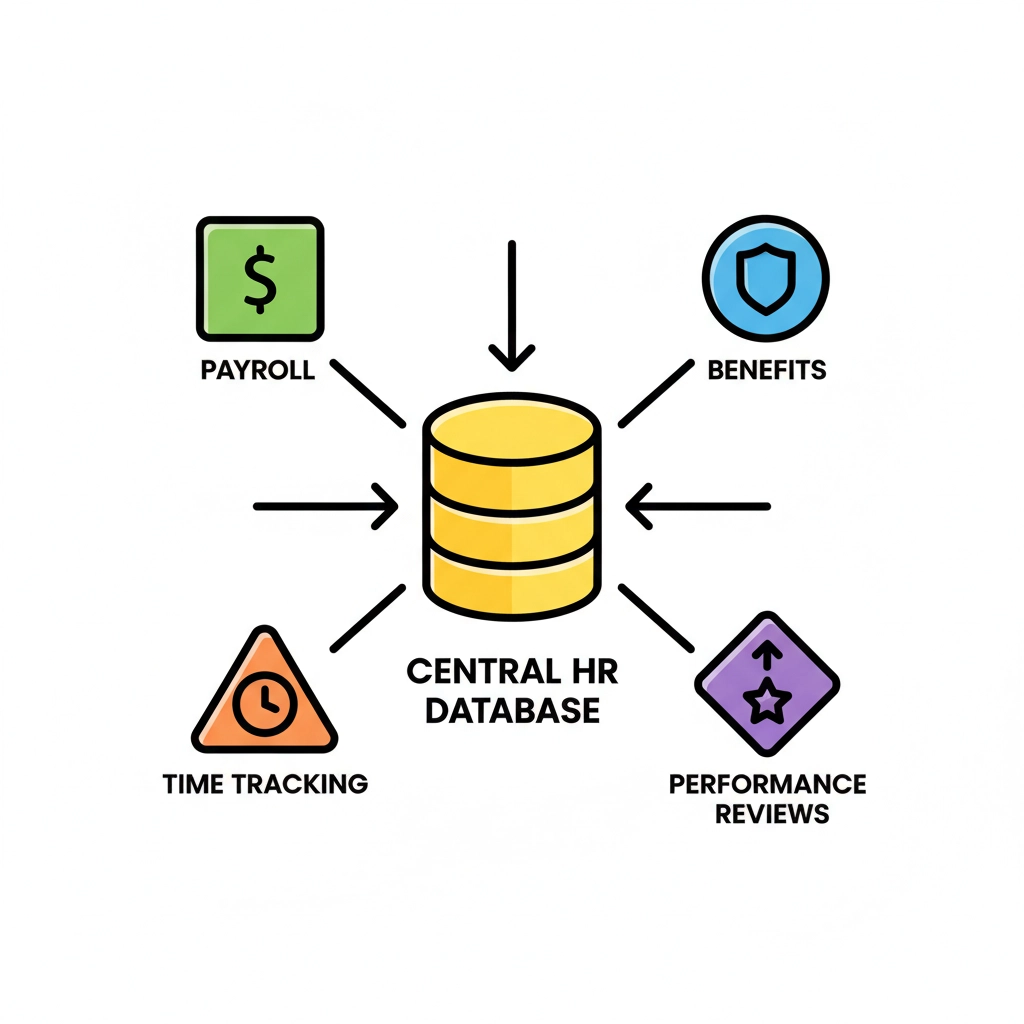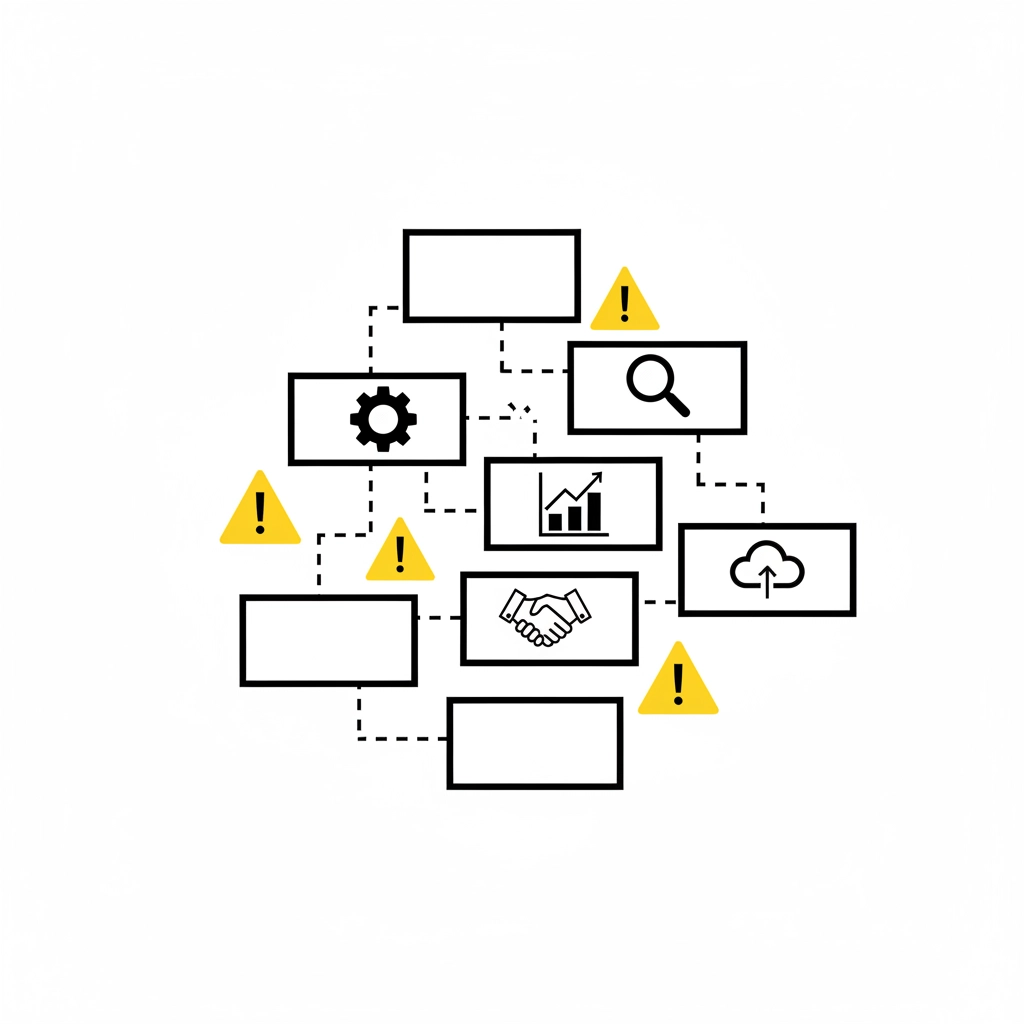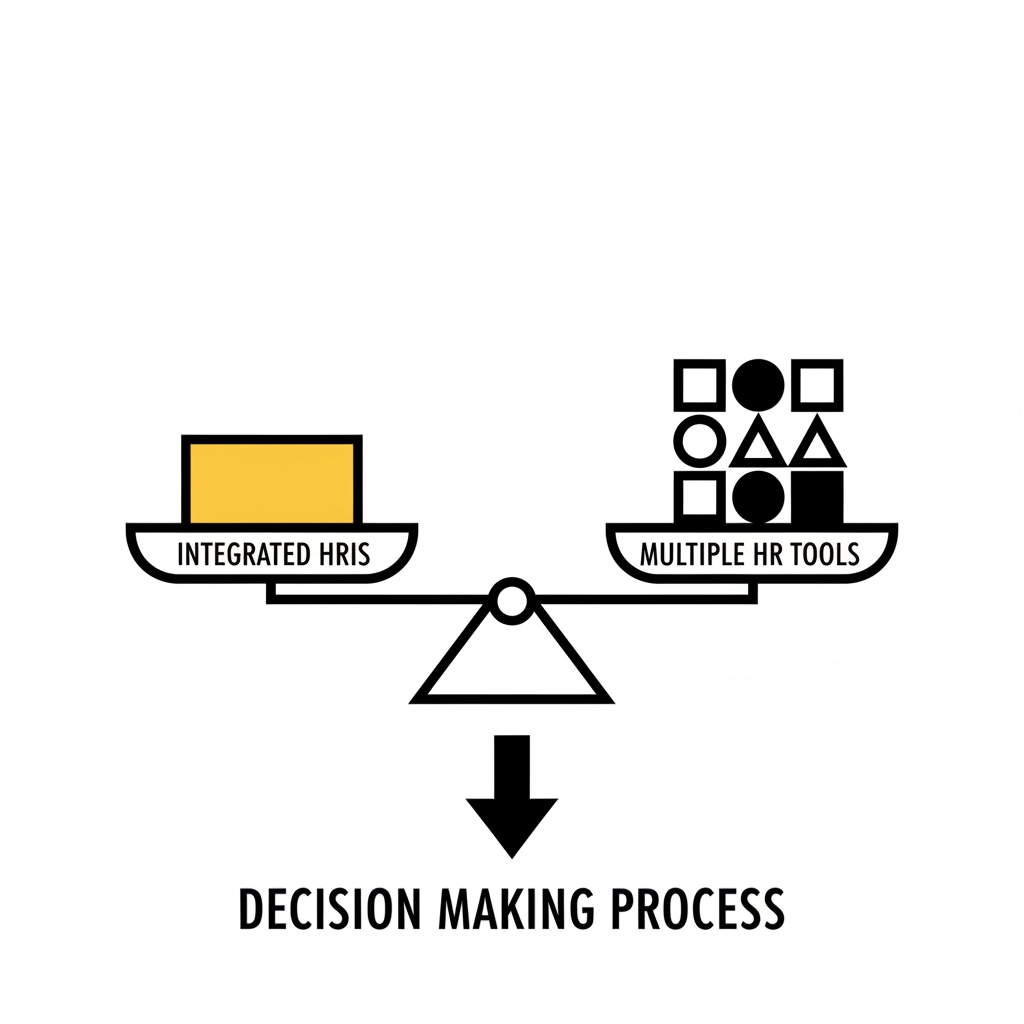Single-Database HRIS vs. Multiple HR Tools: Which Is Better for Your Growing Business?
- Justin Hall
- Nov 13, 2025
- 5 min read
Your business is growing, your team is expanding, and suddenly your simple HR processes aren't so simple anymore. You're juggling employee data across spreadsheets, managing payroll in one system, tracking time off in another, and somehow trying to keep benefits information organized in a third platform. Sound familiar?
This is the crossroads where most growing businesses find themselves: Do you invest in a comprehensive, single-database HRIS that handles everything in one place, or do you stick with multiple specialized HR tools that excel in their specific areas?
It's not just a technology decision, it's a strategic choice that will impact your data accuracy, operational efficiency, and ability to scale. Let's break down both approaches so you can make the right call for your business.
The Single-Database HRIS Approach: Your All-in-One Solution
Think of a single-database HRIS as your HR command center. Everything, employee records, payroll, benefits, time tracking, performance reviews, lives in one centralized system where data flows seamlessly between functions.

The Strengths of Going All-in-One
Data Accuracy That Actually Works
Here's the thing about multiple systems: they don't talk to each other. When Sarah in accounting updates an employee's address in payroll, but HR still has the old address in the benefits system, you've got a problem. With a single-database HRIS, update the information once, and it automatically propagates everywhere it needs to go.
No more "John Smith" becoming "Jon Smith" across different platforms. No more hunting through three different systems to verify whether someone's emergency contact information is current.
Operational Efficiency That Saves Real Time
Instead of logging into your payroll system, then switching to your benefits portal, then opening your time-tracking app, you handle everything from one dashboard. Your HR team stops being data entry clerks constantly re-entering the same information across multiple platforms.
Need to generate a comprehensive report on employee turnover, compensation, and benefits utilization? With a single system, that's a few clicks. With multiple tools, that's an afternoon of spreadsheet gymnastics.
Compliance and Security Advantages
When all your employee data sits in one centralized, secure location, you've got better protection against data breaches and easier compliance management. Automated record-keeping means you're not scrambling to pull together documentation from five different systems when an auditor comes knocking.
The Downsides to Consider
Jack of All Trades, Master of None
The biggest challenge with all-in-one HRIS systems is that they might be pretty good at everything but not exceptional at the specific thing you care most about. If recruiting is your biggest challenge, a specialized recruiting platform might have features that blow your HRIS recruiting module out of the water.
Implementation Complexity
Rolling out a full HRIS is a bigger project than implementing individual point solutions. You're looking at more organizational change management, more training, and more upfront investment in getting everyone on board.
The Multiple HR Tools Approach: Best-in-Class Specialists
This approach is like building an all-star team where each player excels in their position. You might use BambooHR for core HR functions, Greenhouse for recruiting, Lattice for performance management, and Justworks for payroll.
The Strengths of Specialization
Superior Functionality in Each Area
Specialized tools often offer features that general HRIS systems simply can't match. A dedicated recruiting platform might have AI-powered candidate matching, advanced interview scheduling, and detailed pipeline analytics that put basic HRIS recruiting modules to shame.
Flexibility and Vendor Freedom
If your performance management tool isn't cutting it, you can switch it out without dismantling your entire HR infrastructure. This flexibility lets you adapt quickly as your needs evolve or as better solutions hit the market.

The Reality Check
Data Chaos
Here's what actually happens with multiple systems: data doesn't sync, information gets out of date, and you spend way too much time playing detective to figure out which system has the "real" information.
Different platforms follow different data structures, making simple tasks like downloading and uploading employee information an exercise in frustration.
Hidden Costs Add Up Fast
Sure, each individual tool might seem reasonably priced, but add up all those monthly subscriptions, plus the integration costs, plus the time your team spends managing multiple platforms, and suddenly your "cost-effective" solution isn't so affordable.
Operational Complexity
Multiple tools mean multiple projects, multiple training sessions, and multiple points of failure. Your HR team becomes system administrators instead of strategic partners.
Head-to-Head Comparison
Factor | Single-Database HRIS | Multiple HR Tools |
Data Accuracy | High - one source of truth | Low - prone to inconsistencies |
Setup Speed | Slower overall implementation | Faster per individual tool |
Specialized Features | Good at core functions | Excellent in specific areas |
Total Cost | Lower long-term costs | Higher with all subscriptions |
Reporting | Comprehensive dashboards | Manual data consolidation |
Maintenance | Single vendor relationship | Multiple vendor management |
Scalability | Designed for growth | Gets complex as you scale |
Making the Right Choice for Your Business
Go with Single-Database HRIS if:
You're Past the 50-Employee Mark
Once you hit this threshold, the complexity of managing multiple systems typically outweighs the benefits of specialized functionality. You need the operational efficiency that comes from centralized data management.
Data Accuracy is Critical
If compliance is important in your industry, or if you're tired of dealing with inconsistent employee information across systems, a single database eliminates these headaches.
Your Budget is Limited
Counterintuitive as it might seem, a single HRIS often costs less than multiple specialized tools when you factor in integration, training, and management overhead.
Stick with Multiple Tools if:
You're Under 20 Employees
Smaller organizations can often manage effectively with targeted tools that match their immediate needs without the complexity of a full HRIS implementation.
You Have Highly Specialized Requirements
If you're in a unique industry with very specific HR needs, or if one particular area (like recruiting or performance management) is absolutely critical to your success, specialized tools might be worth the complexity.

Consider a Hybrid Approach
Many smart businesses take a middle path: implement a core HRIS for foundational functions, then add specialized tools only where the HRIS falls short. This gives you the efficiency of centralization while maintaining access to best-in-class functionality where you need it most.
The Bottom Line
For most growing businesses, a single-database HRIS is the smarter long-term play. Yes, you might sacrifice some specialized functionality, but you gain operational efficiency, data accuracy, and the ability to scale without drowning in system complexity.
The key is choosing an HRIS that grows with you: one that handles your current needs while offering the flexibility and features you'll need as your business evolves.
Remember, you're not just choosing HR software; you're choosing the foundation for how your organization manages its most valuable asset: your people.
Need help evaluating your options? Contact JHHR for expert guidance on selecting the right HR technology strategy for your growing business.
Comments